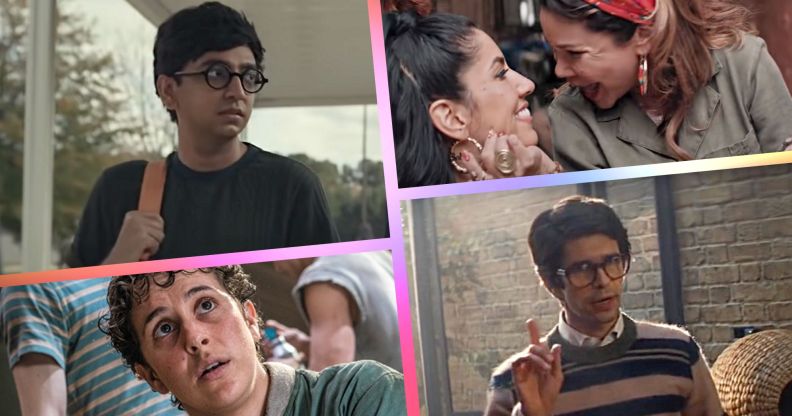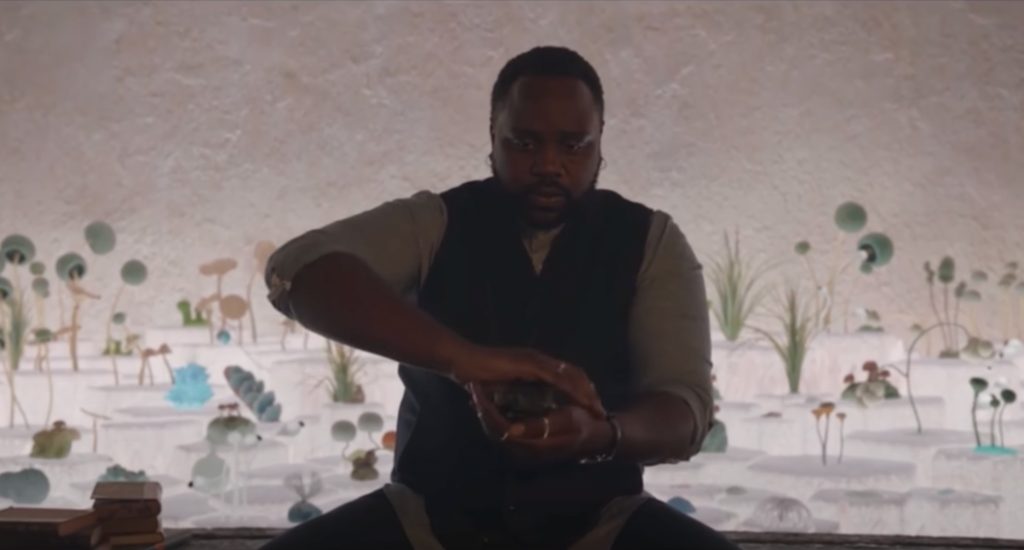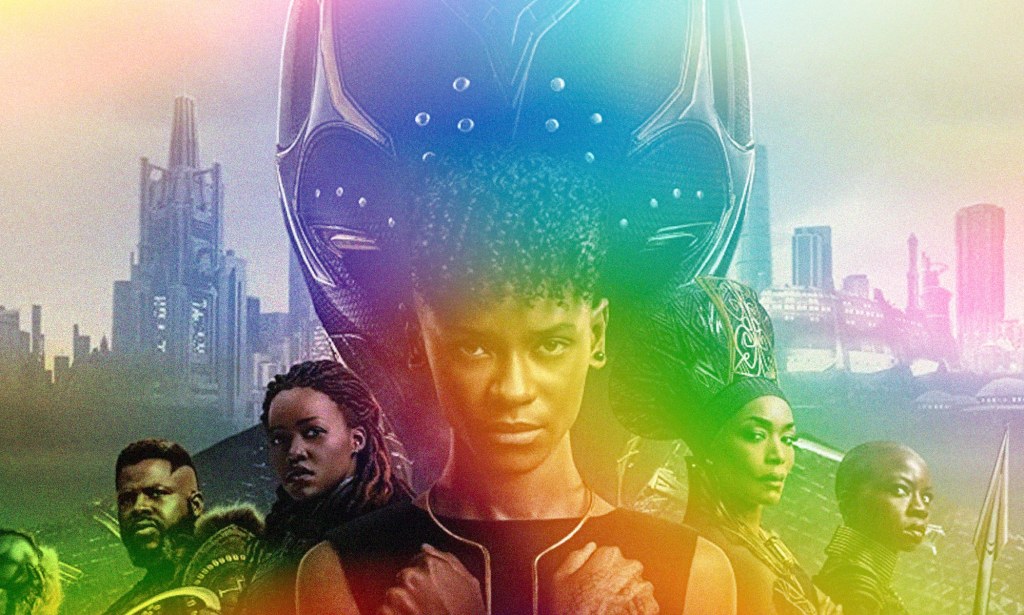In a surprise to absolutely no one, GLAAD has found film studios are still failing the LGBTQ+ community

Major Hollywood studios are still not representing the LGBTQ+ community enough, says GLAAD. (Fox/Universal Pictures/Warner Bros/Walt Disney)
The annual report on LGBTQ+ inclusivity from the Gay & Lesbian Alliance Against Defamation (GLAAD) has found major film studios are still dragging their heels when it comes to representation.
The Studio Responsibility Index (SRI), which holds the seven highest-grossing film studios to account, found only 20.8 per cent (16 out of 77) of films in 2021 included LGBTQ+ characters.
Although this is an increase of six films from 2020, it is an overall decrease of 1.9 per cent and highlights a broader pattern of falling representation for the LGBTQ+ community.
The studios include Disney, Warner Bros, Lionsgate, Paramount Pictures, Universal Pictures, Sony Pictures and United Artists Releasing.
Lionsgate and Paramount are in a woeful position with zero films including any LGBTQ+ characters, while United Artists Releasing are moving ahead with 4 films, and Disney with 5.
Inspired by the Bechdel test, which analyses whether two female characters talk to each other about something other than a man, GLAAD has rolled out the Vito Russo test to see how many films feature meaningful representation. This year only 56 per cent (nine out of 16) films passed the test, a decrease from 90 per cent the previous year.
So where are we failing?

The SRI has found that lesbian, bisexual, trans and non-binary characters are all being hugely overlooked when it comes to representation – with 69 per cent of films featuring a majority of white gay men.
Of the 28 LGBTQ+ characters, 19 of them were also men, with zero representation for trans women and non-binary characters.
Only 25 per cent (four out 16) films featured lesbian characters and only two (12 per cent) featured any bisexual representation.
This is a blow for queer women, with representation down from the previous year during a time when major streaming platforms are being criticised for cancelling sapphic TV shows.
The report outlines a number of missed opportunities such as including a discussion of Aretha Franklin’s queer sister Carloyn in the biopic of her life, Respect.
In House of Gucci, there is no exploration of designer Tom Ford’s sexuality, while in The King’s Man, the historical figure of Rasputin is referred to as queer using tired stereotypes before he is killed.
Meanwhile, films such as The Matrix Resurrections, which has long been seen as a trans allegory, did not take advantage of their queer legacy and featured no explicitly queer characters.
The disappointing data remains consistent when it comes to racial diversity, with a decrease to a mere 39 per cent of non-white LGBTQ+ characters.
Although there were well-defined characters of colour such as Jared (Nik Dodani) in Dear Evan Hansen, this is an area that many are calling on to improve.
Meanwhile, data has consistently found no representation for LGBTQ+ characters who are HIV positive or have a (known) disability.
LGBTQ+ representation in film has been a topic of regular discourse throughout the year, with many people pointing out that when LGBTQ+ characters do make it onto the big screen, it is only fleetingly.
The report found that studios are once again floundering when it comes to screen times, with only seven out of 28 characters having over 10 minutes of screen time, and six even falling under one minute.
This was the case with Disney’s Lightyear and Black Panther: Wakanda Forever, which featured a brief same-sex kiss.
Another major film, Batgirl, which was set to star trans actor Ivory Aquino, was cancelled post-production, all of which will impact next year’s report.

GLAAD has also considered political affiliations this year in its analysis of which studios are failing LGBTQ+ communities behind the scenes.
Warner Bros in particular was called out for their continued support of JK Rowling for her Fantastic Beasts series and Harry Potter video games despite her anti-trans views.
What are the wins for the LGBTQ+ community?
Although this year saw a decrease in representation, there has been a substantial increase in LGBTQ+ characters over the past decade.
GLAAD reported their first trans male character in five years in West Side Story. In the film, Anybodys (Iris Menas) is a trans man wanting to join The Jets.
Elsewhere, films such as In The Heights featured a queer Latina couple (Daniela and Carla), while Q is an explicitly out gay man in the final Bond movie, No Time to Die.
Walt Disney has given a particularly strong showing in this report, with films such as Marvel’s Eternals and Jungle Cruise both passing the Vito Russo test.
Disney has historically made headlines for anti-LGBTQ+ donations and affiliations with Florida’s Don’t Say Gay policy, but according to GLAAD, there were found zero donations to anti-LGBTQ+ politicians this year.
Megan Townsend, GLAAD’s director of Entertainment Research and Analysis, said: “There are so many parts of our community – bisexual+ people, those living with HIV, LGBTQ characters with disabilities, and transgender people, to name a few – that have yet to see themselves fully reflected on the big screen.
“As we look to the next ten years, these stories must become a priority if studios want younger and more diverse generations to continue to support and engage with their storytelling.”

